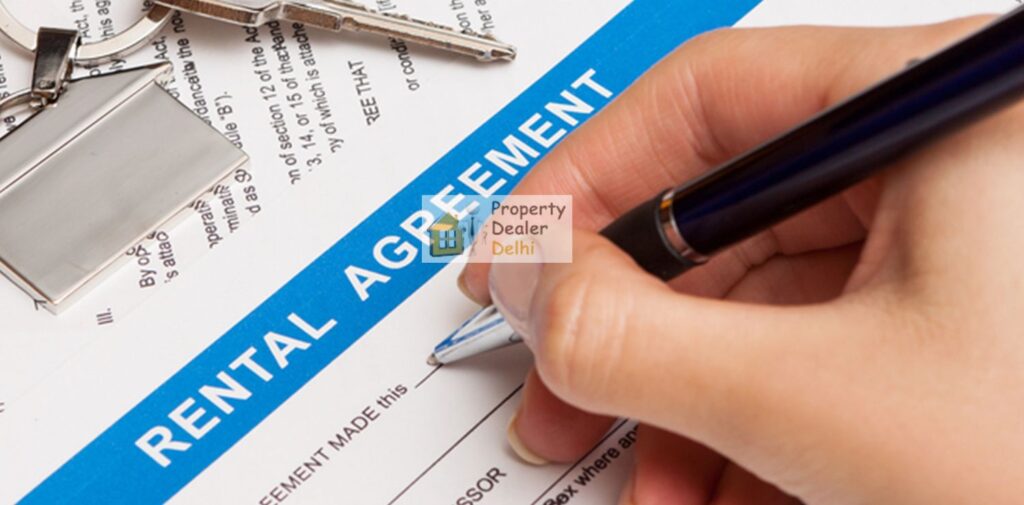
Renting a property in Delhi, whether as a landlord or a tenant, involves signing a property rental agreement. This agreement is a legal document that outlines the terms and conditions between the two parties and helps prevent disputes in the future. A well-written rental agreement ensures clarity, fairness, and protects the rights of both the landlord and the tenant. In this article, we’ll walk you through the essential steps to create a property rental agreement in Delhi, ensuring you get it right.
Understand the Key Components of a Rental Agreement
Before drafting a rental agreement, it’s important to understand the essential components that should be included. These elements will protect both the landlord and the tenant while ensuring that both parties are clear on their responsibilities.
- Names and Details of the Parties: The agreement should clearly mention the full names, addresses, and identification details (such as Aadhaar number or PAN) of both the landlord and the tenant.
- Property Details: Include a complete description of the property being rented, such as the address, type of property (apartment, house, office space, etc.), and any other relevant details, such as the size of the property.
- Rent Amount and Payment Terms: The agreement should specify the rent amount, payment due dates, and the mode of payment (cheque, bank transfer, cash, etc.). It should also mention if any advance deposit or security deposit is required, and the conditions for refunding it.
- Lease Duration: The agreement should state the duration of the lease, whether it is a fixed-term lease (e.g., one year) or a month-to-month agreement. The start and end dates should be clearly mentioned, along with the renewal or termination process.
- Maintenance Responsibilities: The agreement should outline who is responsible for maintaining the property and covering maintenance costs. Typically, the landlord is responsible for structural repairs, while the tenant is responsible for minor maintenance like keeping the property clean and fixing small damages.
- Utility Charges: Specify which utilities (electricity, water, gas, etc.) the tenant will pay for and which will be covered by the landlord. This avoids confusion about payment responsibilities.
- Terms of Termination and Notice Period: Both parties should agree on the terms for ending the rental agreement, including the notice period required for terminating the lease. Typically, the notice period is one or two months, but this may vary depending on the agreement.
- Subletting and Modifications: The agreement should include a clause regarding whether or not the tenant is allowed to sublet the property or make changes to it (like painting the walls or installing fixtures).

Draft the Rental Agreement
Once you have all the necessary information, you can begin drafting the rental agreement. There are several ways to do this:
- Use a Template: You can find various rental agreement templates online, which you can customize to suit your needs. However, make sure that the template is valid according to Indian laws and addresses all the necessary components.
- Hire a Legal Expert: While templates are convenient, it’s always a good idea to consult a lawyer, especially if the property rental agreement is more complex. A legal expert can help you draft a comprehensive agreement that meets all legal requirements and protects both parties’ interests.
- Be Clear and Detailed: Avoid vague terms or ambiguity in the agreement. For example, instead of saying “reasonable repairs,” specify the exact nature of repairs that will be the tenant’s responsibility. Clear terms will prevent misunderstandings later on.
Registration of the Rental Agreement
In Delhi, it is recommended (though not mandatory) to register a rental agreement if the lease period exceeds 11 months. A registered agreement provides more legal protection in case of disputes.
To register the agreement:
- Visit the Sub-Registrar Office: The landlord and tenant need to visit the local sub-registrar office together. Both parties must carry government-issued ID proof, the original rental agreement, and passport-sized photographs.
- Pay the Registration Fee: There is a nominal fee for registering a rental agreement, usually based on the total rent amount and duration of the lease. It’s important to check the current rates with the local sub-registrar office.
- Get a Copy of the Registered Agreement: Once the agreement is registered, both the landlord and tenant will receive a copy of the registered document. This copy will serve as a legally valid proof of the rental agreement.

Things to Keep in Mind
Creating a property rental agreement in Delhi is a straightforward process, but there are a few things to keep in mind:
- Stay Updated with Legal Changes: Property laws can change over time. It’s important to stay updated with any legal changes that may affect rental agreements in Delhi. For example, the rent control laws or guidelines regarding eviction might change, which could impact the terms of the agreement.
- Maintain Proper Documentation: Both the landlord and the tenant should keep a copy of the signed rental agreement, payment receipts, and any other important documents related to the property. These documents can be crucial if any disputes arise in the future.
- Respect Privacy: Rental agreements should also respect the privacy of both parties. If the landlord intends to visit the property for inspections, they should provide reasonable notice to the tenant. Similarly, tenants should be respectful of the landlord property.
Conclusion: Property Rental Agreement in Delhi
Creating a property rental agreement in Delhi is a necessary step for both landlords and tenants to ensure that the rental relationship is clear and legally binding. By including all essential details such as rent, payment terms, maintenance responsibilities, and notice periods, both parties can avoid conflicts and misunderstandings. Additionally, registering the agreement provides added legal protection. Whether you choose to use a template or hire a lawyer, ensuring that your rental agreement is clear and comprehensive will help protect both you and your property.

